PEOPLE. PLANET. PURPOSE.






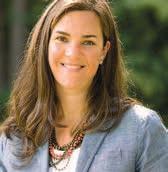

Don't miss interviews and lifestyle tips for reducing stress.






Scan the QR code to JOIN US LIVE ONL INE as these top women in wellness share their expert insights for reducing stress and achieving WELLthier Living!


Lead Editor Martin Miron
Production Assistant Joann Dalnoky

Design & Production C. Michele Rose
Sales & Marketing Michelle Dalnoky
Natural Awakenings – Pittsburgh
P.O. Box 390
Uledi, PA 15484
Phone: 724-271-8877
Publisher@NaturalAwakeningsSWPA.com NaturalAwakeningsSWPA.com
Subscribe online to receive your FREE monthly digital magazine at NaturalAwakeningsSWPA.com
COO/Franchise

Thirty years ago, my beloved sister Joann was diagnosed with an aggressive Stage 3 breast cancer. No worries. She’s fine. She was 32 years old and in the Air Force at the time with a wonderful doctor that determined she would be getting a particularly powerful course of chemo. In those days, doctors, especially military doctors, still had the ability to customize cancer treatments, and this is what he felt would save her life. He was right and he was successful. But boy, was it rough.
CEO Kimberly B. Whittle
SalesJoe Dunne
National Editor Sandra Yeyati
Editor Brooke Goode
Copy Editor/Proofreader Melanie Rankin
Design & Production Gabrielle W-Perillo

National Advertising Lisa Doyle-Mitchell
Natural Awakenings Publishing Corporation 350 Main Street, Suite 9B Bedminster, NJ 07921
Ph: 239-206-2000

NaturalAwakenings@KnoWEwell.com
©2023 by Natural Awakenings. All rights reserved. Although some parts of this publication may be reproduced and reprinted, we require that prior permission be obtained in writing.
Natural Awakenings is a free publication distributed locally and is supported by our advertisers. Please call to find a location near you or if you would like copies placed at your business.
We do not necessarily endorse the views expressed in the articles and advertisements, nor are we responsible for the products and services advertised. Check with a healthcare professional regarding the appropriate use of any treatment.
After her mastectomy, it was six months of chemo, and there were many days that she spent laying on the bathroom floor due to the nausea. It was devastating. Because I have always had lumpy breasts, I started getting mammograms frequently and even had a needle aspiration biopsy at the Moffitt Cancer Center, in Tampa. After several years of mammograms, I discovered thermography. An affordable, simple, radiation-free infrared photo is interpreted by an M.D. and radiologist, with a report like those with an X-ray, CT scan or MRI. Unfortunately, insurance doesn’t cover thermography but does cover mammograms. I also worked on an oncology (cancer) floor of a hospital and saw the good and the bad. I started researching more natural approaches to cancer treatment and have continued to do so for the last 30 years. I am not one to shirk conventional medicine altogether, but I am always interested in the least-invasive approaches such as integrative medicine, which combines holistic and conventional medicine, and functional medicine, which looks to find the root cause of disease and fix that instead of just treating the symptoms.
We live in a toxic world and can’t avoid all of the toxins, but simply do our best to eat clean food, use clean products, wear natural fibers, filter our water and protect our lungs from them. We also need to take care of our mental health, because when we are stressed or depressed or in emotional pain, our immune system is weak. I also believe we are all susceptible to cancer if too many links in our chain are weak.
All these factors predispose us to cancer. I’m not sure I would go for conventional treatment for cancer now. I have been thinking about this a lot lately because I learned about an amazing scientist, Dr. Hadiyah-Nicole Green, who founded the Ora Lee Smith Cancer Research Foundation (OraLee.org) and has found a way to kill cancer without surgery, chemo or radiation in mice. Her aunt and uncle that raised her both died from cancer, and she had dedicated her life to finding a treatment that works without the suffering.
Dr. Green developed special nano-particles that are activated with a safe laser to kill tumors, and she has done so in mice. Now needing support to start human clinical trials, she refuses to sell this technology, because she wants this treatment to be accessible to anyone in the world that needs it, not in the hands of big corporations. I have done a lot of reading about this technology and I am super-excited about it and about Dr. Green. I have become an official volunteer for her organization and you can look to find information about her research foundation in the magazine.
Michelle Dalnoky, RN, BA, Publisher
Natural Awakenings is a network of natural lifestyle magazine publishers empowering local communities with knowledge, resources and connections to lead healthier lives on a healthy planet.
16

Contents
10 SUSTAINABLE EATING Tips to Shrink Your Foodprint
14 THE WINDS OF CHANGE
Young Activists Pursue Climate Justice and Green Living
16 A NEW DAWN ON THE FARM FRONT
Stepping Away From Industrialized Agriculture

20
To advertise with Natural Awakenings or request a media kit, please contact us at 724-271-8877 or email Publisher@NaturalAwakeningsSWPA.com. Deadline for ads: the 10th of the month.
EDITORIAL SUBMISSIONS

Email articles, news items and ideas to: Publisher@ NaturalAwakeningsSWPA.com. Deadline: 15th of the month.
CALENDAR SUBMISSIONS
Email Calendar Events to: Publisher@NaturalAwakenings SWPA.com or visit NaturalAwakeningsSWPA.com. Deadline for calendar: the 10th of the month.
NATIONAL MARKETS
Advertise your products or services in multiple markets! Natural Awakenings Publishing Corp. is a growing franchised family of locally owned magazines serving communities since 1994. To place your ad in other markets call 239-206-2000. For franchising opportunities call 239-206-2000 or email Natural Awakenings@KnoWEwell.com.
22
20 JEFF MOYER on Farming for Human and Planetary Health

22 KID-APPROVED AUTISM DIETS
Strategies to Optimize Nutrition and Acceptance

23 OUTDOOR SAFETY FOR PETS

Helpful Tips to Navigate Hazards
23
6
23 natural pet
27 calendar 30 resource guide
31 classifieds
Lisa Parker, owner and designer at On The Rocks Designs, will have a grand opening event at 355 Butler Street, in Etna, from 2 to 7 p.m., April 6 and 7, and 1 to 6 p.m., April 8. She says, “I just moved my studio, and it now has a retail storefront. My studio is in the back. My handcrafted jewelry, as well as crystals, stones and tools for jewelry makers will be available for sale. Drawings will be held on April 8, and anyone that makes a purchase through April 8 will be entered to win one of several prizes.
Custom services are also available. “No longer do you have to wait for a local art fair to get one-of-a-kind jewelry,” she advises. I strive to create quality, handcrafted casual jewelry that is distinctive and can be worn every day, because you don’t need a special occasion to feel special, and really bold jewelry that makes a statement for those big occasions.”
For more information, call 412-206-9156, email Lisa@OnTheRocksdesigns.com or visit OnTheRocksDesigns.com. See ads, pages 7 and 18.

Holistic Dentistry and Spa is introducing two new services, salt therapy and infrared sauna therapy, that encourage holistic healing for the community. They are located at 2555 Washington Road, Suite 620, in Upper St. Clair.
Dr. Mark Buzzatto, DDS, IBDM, NMD, CCWFN, provides holistic wellness, dental health services using biocompatible materials with no metals or toxins. He says, “Salt therapy can relieve symptoms from allergies, asthma, acne and more. Infrared sauna sessions can promote better sleep, trigger weight loss and boost the immune system. It is important for the community to know and learn about these services so that we can be mindful about how we are taking care of our bodies.”

Location: Dental email: nutradentist@gmail.com. Spa email: elena. nutradentist@gmail.com. Call 412-831-9700 or visit nutradentist. com. See ad, page 13.
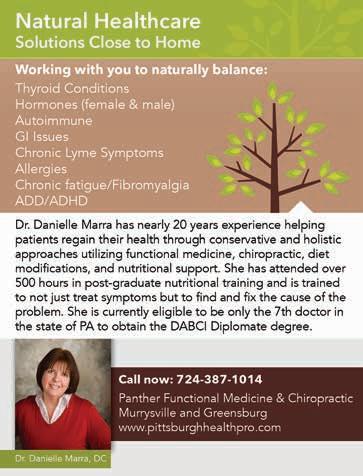

Walk to Cure Arthritis from 8 a.m. to 3 p.m., April 22, at Point State Park at the tip of Pittsburgh’s Golden Triangle, supporting the Arthritis Foundation’s mission to cure arthritis and help people battling the disease live a full life.
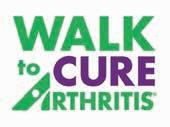
Arthritis is the nation’s number one cause of disability. Close to 60 million americans live with arthritis, and the arthritis foundation is taking steps toward finding solutions, better treatments and a cure. Walk to Cure Arthritis, the Arthritis Foundation’s annual flagship fundraising event, celebrates arthritis warriors, their caregivers and everyone else that is part of the movement to conquer arthritis.
Funds raised will be used to keep research, resources and services going strong for those battling arthritis. Together, Pittsburghers can Walk to Cure Arthritis and help reach the goal of raising $105,000 locally.
Lara Daly, executive director of western Pennsylvania and West Virginia, says, “For over seven decades, the Arthritis Foundation has been committed to conquering this disease through life-changing research and resources. We couldn’t make the progress that we do if it weren’t for community members coming together to support and raise money for this important cause.”
For more information, visit WalkToCureArthritis.org/Pittsburgh.


The second annual Pittsburgh Opera Family Day from 10 a.m. to noon, April 1, comprises four different activities designed to expose children, teens and their families to some of opera’s many different components.
It begins at the Bitz Opera Factory, in the Strip District, where volunteers from the Pittsburgh Youth Symphony Orchestra will show, discuss and demonstrate the wide range of musical instruments found in an opera’s orchestra. At the musical instrument show and tell voice lesson, children will learn about different voice types, how to use proper breath support and how to project their voices. Opera Storytime will be immerse kids in the story of The Great Poochini—dog by day, opera star by night. Costume exploration allows children to try on costumes and learn how they convey information about the characters we see on stage.
A Brown Bag concert follows at noon. Parents or guardians must accompany children younger than high school age, so they can enjoy the activities with their children. Each family will receive a free goody bag at the end of the event.
Register at Tinyurl.com/PittsburghOperaFamilyDay. See ad, page 19.


A new study published in Molecular Psychiatry has shown that eating more fermented foods and fiber daily for just four weeks significantly lowered perceived stress levels. Forty-five participants with relatively low-fiber diets were split into two groups.
One group met with a dietitian that recommended a psychobiotic diet, which included six to eight daily servings of fruits and vegetables high in prebiotic fibers, such as onions, leeks, cabbage, apples, bananas and oats; five to eight daily servings of grains; three to four servings of legumes per week; and two to three daily servings of fermented foods like sauerkraut, kefir and kombucha. The control group received only general dietary advice based on the healthy eating food pyramid.

Thegroupfollowingthepsychobioticdietreportedfeelingless stressedcomparedwiththoseinthecontrolgroup.Moreover, significantchangesinthelevelofcertainkeychemicalsproducedbygutmicrobeswerefoundintheseparticipants.Some of these chemicals have been linkedtoimprovedmentalhealth, whichcouldexplainwhytheparticipantsreportedfeelingless stressed.Thequalityofsleepimprovedinbothgroups,butthose onthepsychobioticdietreportedgreatersleepimprovements.

Pomegranate fruit has been widely used in traditional medicine, and a new, randomized, double-blind, placebocontrolled study published in the Journal of Clinical Medicine looked at the effects of taking pomegranate extract for a period of four weeks on different aspects of skin and gut health. Using facial imaging, researchers found the group that received the pomegranate extract had significant reductions in wrinkle severity and a decrease in the rate of forehead sebum excretion. They also found beneficial effects to the gut-skin axis, noting that participants in the pomegranate extract group had a higher abundance of Eggerthellaceae in the gut with accompanying wrinkle reduction. The scientists concluded that the skin benefits from pomegranate extract may be due to the potent antioxidant and anti-inflammatory properties of phytochemicals, as pomegranate contains more than 100 bioactive constituents.



 by Ana Reisdorf, MS, RD
by Ana Reisdorf, MS, RD
Knowing which foods have the least environmental impact is not always easy. Organic blueberries are considered Earth-protective because no pesticides were used to grow them, but if they were shipped from California to a Florida grocery store, the transportation represents a steep carbon footprint. And if we waited too long to eat those blueberries and had to throw them away, all of the resources spent on producing those fruits were wasted.
To get a fuller picture of our food-related environmental impacts, we need to take into consideration the many variables associated with the production, transportation and consumption of food, and that’s where the “foodprint” comes in—a barometer of eco-friendliness. There are many ways to calculate a foodprint; EarthDay.org/foodprints-calculators lists a few automated calculators and food quizzes that can help. Here are noteworthy examples:
n EatLowCarbon.org compares the carbon emissions associated with different meals—ranging from bean soup (lowest CO2 emissions) to a Philly cheesesteak (highest).
n FoodPrint.org offers a questionnaire about a person’s food choices and follows up with tips to reduce their foodprint.
n FoodEmissions.com calculates the foodprint of specific foods like dairy or seafood by asking about the origination and destination of the food to determine transportation emissions, and by asking the consumer to self-report their percentage of waste to calculate the loss of natural resources.
When shopping for groceries, consider buying from food producers that support environmental stewardship, sustainability and regenerative farming practices in their production systems. A list of third-party certifications that can help identify responsibly manufactured foodstuffs can be found at Foodprint.org/eatingsustainably/food-label-guide.
Lisa Andrews, MEd, RD, owner of Sound Bites Nutrition, encourages her clients to eat local, seasonal produce. “[It] spares the environment, as it doesn’t need to be flown across the country, reducing fuel costs,” she explains, adding that local produce is generally more nutritious and cost effective.
According to the U.S. Department of Agriculture (USDA), 30 to 40 percent of the available food supply is wasted. While there are many reasons for food loss at all stages of production and deliv-
ery, consumers can have a major impact in reducing how much food is wasted.
The U.S. Environmental Protection Agency provides advice for properly storing foods in the refrigerator: leafy veggies go in the high-humidity drawer, while most fruits should be placed in the low-humidity bin. Some fruits like apples and avocados release ethylene gas and can cause nearby produce to spoil, so they should be stored separately. Wash berries just before eating them to prevent mold. Store potatoes, onion and garlic in a cool, dry, dark and well-ventilated place. Freeze bread, meat or leftovers that won’t be eaten before they spoil.
According to Registered Dietitian Lauren Panoff, one way that consumers can benefit the environment is by transitioning to a more plant-predominant lifestyle. “Plant foods utilize far fewer natural resources than industrial animal agriculture, which is also one of the largest emitters of greenhouse gases and drivers of Amazon deforestation,” Panoff explains.
Patricia Kolesa, MS, RDN, founder of the Dietitian Dish, notes, “Plant-based proteins tend to be more affordable and can be stored longer than your animal proteins, helping reduce food waste.”

Nutritics, a food information company, offers a list of the highest-ranking foods when it comes to sustainability, considering inputs like water usage, carbon emissions or capture, land usage and nitrogen storage capabilities. Their list includes mussels, beans, lentils, peas and other legumes, mushrooms, seaweed, cereals and grains, and organic fruits and vegetables.
Perfectly fresh food that the family has decided not to eat can be donated to people in need. Visit FoodPantries.org to find a nearby soup kitchen or food bank. Compost scraps and spoiled items to divert them from landfills. For composting instructions by the USDA, visit Tinyurl.com/USDAcompost
Ana Reisdorf is a registered dietitian and freelance writer with more than 15 years of experience in the fields of nutrition and dietetics.
YIELD: 6 SERVINGS
1 rotisserie chicken, shredded
1 cup green cabbage, finely shredded
1 cup purple cabbage, finely shredded
½ cup carrot, finely shredded
¼ onion, sliced
½ cup peanut butter
3 Tbsp coconut aminos
2 Tbsp sesame oil
1 tsp garlic
Salt to taste
Konjac noodles (optional)
Sesame seeds
In a skillet, heat one tablespoon of sesame oil. Add the sliced onions and cook until softened. Add shredded chicken, cabbage, carrot, coconut aminos, remaining sesame oil, garlic and salt to taste. Once the cabbage has wilted and cooked, add the

YIELD: 10 SERVINGS
1½ cups cooked sushi rice, cooled
3 sheets nori paper
SALMON OR MUSSELS
1 lb boneless, skinless wild-caught sockeye salmon, cubed (can substitute with mussels)
2 Tbsp sesame oil
1 Tbsp honey or maple syrup
½ tsp garlic powder
2 Tbsp coconut amino teriyaki sauce
Salt to taste
SPICY MAYO
¼ cup avocado mayo
2 tsp sriracha sauce
1 tsp coconut aminos
TOPPINGS
½ avocado, diced small
2 tsp black sesame seeds
Preheat oven to 350°. Cook rice according to package instructions and set aside to cool. Mix spicy mayo ingredients and set aside.
peanut
Serve hot, sprinkled with sesame seeds. For a vegan or vegetarian alternative, omit the chicken.
Mix salmon ingredients and set aside. Cut each nori sheet into four equal squares.
Line a muffin pan with unbleached muffin liners. To each nori square, add about 1 tablespoon of rice and top with the salmon mixture. Transfer the filled squares to the muffin pan. Bake 15 to 17 minutes for salmon or 7 to 10 minutes for mussels. Allow the sushi bites to cool slightly and top with avocado, sesame seeds and a drizzle of spicy mayo.




 by Sheila Julson
by Sheila Julson
Born in the mid-to-late 1990s up to the early 2010s, Generation Z environmental activists agree that urgent action is needed to achieve climate justice, and they’re willing to do what it takes to get results. “Climate and environmental justice and environmental racism are very big concerns among youth, whether or not they are youth of color. It’s not just about energy, water or air—it’s also very much about people,” says Ana GarciaDoyle, executive director of One Earth Collective. The Chicago nonprofit inspires action, facilitates learning and promotes environmental justice through annual programs like the One Earth Film Festival and One Earth Youth Voices, a summit designed to give voice to the next generation’s environmental concerns.
Marin Chalmers, a sophomore at Oak Park River Forest High School, in Illinois, and member of One Earth’s Youth Advisory Council, has been participating in the One Earth Young Filmmakers contest since the seventh grade. Her short documentary, Sondaica, is about wildlife and ecosystems.
Chalmers credits One Earth with helping her connect with people that normally would not be involved with climate activism. Her peers share in the understanding that there’s a climate crisis. “The Earth is breaking,” she explains. “We need to fix it. Everybody needs to do a better job of taking action.” Getting people to pay attention is challenging, Chalmers laments, especially given America’s overwhelming dependence on automobiles and the lack of public transportation. “A lot of people want to help, but just don’t know how,” she notes. “Some people don’t have the financial ability to make environmentally sound choices.”
Although individual action can help mitigate climate change, 16-year-old Sebastian Delgado, a Revolutionary Youth Action League (ROYAL) volunteer, blames polluting, profit-driven corporations for the climate crisis. “The biggest threat to our climate and people of color is capitalism,” he explains. “We need a new economic system that’s not based on profit.”
ROYAL volunteers like Delgado collaborated with Marlene Brito-Millán, Ph.D., an ecology assistant professor at Loyola University Chicago, and Dr. Bryan Ramson, a nuclear physicist and research associate at Fermilab, to craft a social justice plan that incorporates climate town hall meetings to raise awareness and develop action plans. According to Delgado, even when concerned citizens contact their elected representatives, leaders can be slow to act. “Climate change has been happening for decades, and we’re still dealing with the same issues,” he remarks, adding that bold ideas and unwavering action are needed when government officials won’t listen to their constituents.
In Austin, a predominantly Black neighborhood on the west side of Chicago,
two 20-year-olds, Cortez Dean and Ethan Horne, work at paid internships in an urban farming program called Austin Grown, which raises chickens and maintains gardens with vegetables and native pollinators.
A collaboration between One Earth Collective and BUILD Chicago, a nationally respected youth development organization, Austin Grown serves urban communities where fruits and vegetables are hard to find. The organization also offers gardening and healthy eating classes to the public.
Dean is learning firsthand how climate change adversely affects farms, gardens and forests where food and medicinal plants are grown. During a summer heat wave, he witnessed a sewer pipe explode, filling his neighborhood with a powerful stench, and he worries that aging infrastructure will contaminate their drinking water.
“People assume there’s time to solve climate change, but we’re not slowing things down. There’s a lot of work to be done,” Horne says, noting that food deserts disproportionately affect communities of color. “There are lots of areas with no grocery stores, or stores that only offer chips and candy, but no fruits and vegetables.”
Dean and Horne concur that gardening provides needed green infrastructure and nutritional food to underserved populations. “I didn’t fully understand climate change until I put my hands into the soil.
When you do that, you’ll see Earth for what it is—and the damage we’ve done to it,” Dean says.
Originally from Waukesha County, Wisconsin, 21-year-old Grace Arnold feels lucky to have attended two schools with strong environmental programs and student engagement. At the University of Vermont, she participated in marches against fossil fuels and joined lively discussions about climate-related racism at the Social Justice Coalition. Now a student at University of Texas at Austin, she is enrolled in environmental studies classes and notes, “Students are forming environmental clubs. I’m grateful to again be surrounded by people trying to get their voices heard.”
Arnold was a social media volunteer for Plastic-Free MKE, a Milwaukee-based organization dedicated to reducing singleuse plastic waste. She credits social media as a powerful tool that helps her generation reach people and organize activism. “Climate change is intertwined with social, economic and political issues,” she relates. “But small actions can make big impacts— and voting is a powerful thing.”

We all have to eat, and the food industry is big business, with wide-ranging implications across many arenas. Because agriculture is controlled by a handful of multinational corporations, the priority to maximize profits often conflicts with what is best for human and planetary health. In many ways, our food production and consumption practices are broken or on the brink of failure. They are inhumane, socially unjust, environmentally unsound and unsustainable.
Viable, achievable solutions to these immense challenges exist, and the emerging consensus is that regenerative organic agriculture is the key to preserving human health and helping solve the climate crisis. The COVID-19 pandemic uncovered weaknesses in the system, such as supply chain vulnerabilities, and altered human behavior as more people started cooking at home and exploring healthier lifestyle choices. The time is right to make positive changes to the way we grow, distribute and consume food.
For decades, doctors, scientists, farmers and nonprofits at the forefront of the environmental movement have been sounding the
alarm about the inherent weaknesses in the national food chain and the harmful effects of industrial agriculture. In his book Food Fix: How to Save Our Health, Our Economy, Our Communities and Our Planet—One Bite at a Time, Dr. Mark Hyman notes, “Food is the nexus of most of our world’s health, economic, environmental, climate, social and even political crises. While this may seem like an exaggeration, it is not.”
In the late 1800s, American farming began to transition from small, diverse operations that produced a variety of crops and livestock to feed a family or community to an industrialized system dominated by multinational corporations that focused on maximizing yields of just a few crops, primarily corn, soy and wheat. Today, these crops overwhelmingly end up as animal feed, biofuels and cheap, processed food ingredients—a staple of the standard American diet since the 1950s.
Industrial agriculture is now the dominant food production system in this country, characterized by large-scale monoculture, heavy use of chemical fertilizers and pesticides, and meat produced in confined animal feeding operations (CAFO). Most modest family farms have been forced to either get into business with a big company (contract farming) or go out of
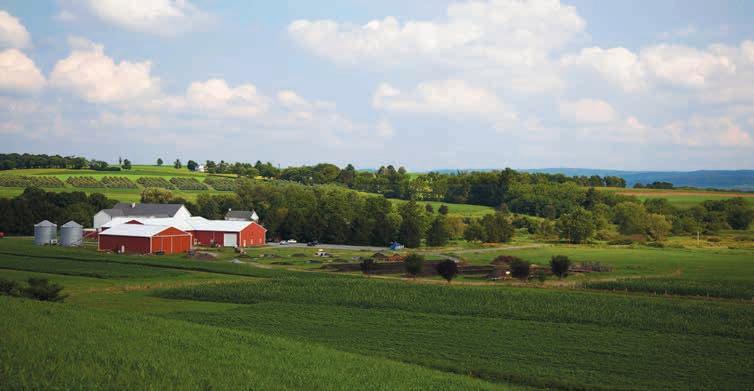
business. The Natural Resources Defense Council reports that 90 percent of the 9 billion chickens raised each year in the U.S. are grown under contract, and 57 percent of hogs are owned and slaughtered by just four companies. According to Rodale Institute, only 8 percent of farms produce more than four crops, while specialty crops like fruits, vegetables and nuts are grown on just 3 percent of cropland.
With industrial dominance comes numerous devastating consequences.
According to the Union of Concerned Scientists, industrially produced food is bad for us on several fronts. Heavy pesticide use is poisoning our food, fertilizer is polluting our drinking water, junk food made of corn and soybeans is degrading our health and the overuse of antibiotics in CAFOs is accelerating the development of antibiotic-resistant bacteria. Bioethicist Peter Singer advises, “Factory farms are breeding grounds for new viruses. We’ve had swine flu and avian flu coming out of factory farms. It’s quite possible that the next pandemic will originate there.”
Zach Bush, a triple board-certified physician and producer of the documentary Farmer’s Footprint, says, “Over the last 25 years, we have seen the most profound explosion of chronic disease in human history. Research from around the globe now suggests that environmental factors are contributing to a combination of genetic, neurologic, autoimmune and metabolic injuries that underpin the collapse of health in our children and adults.”
The U.S. Centers for Disease Control and Prevention report that chronic and mental health conditions account for 90 percent of the nation’s $4.1 trillion in annual health care expenditures. Obesity affects 20 percent of children and 42 percent of adults. More than 850,000 Americans die of heart disease or stroke annually, and 37 million have diabetes. Each year, more than 1.7 million people are diagnosed with cancer, while 600,000 succumb to the disease.
“Most of those diseases are caused by our industrial diet, which means they are avoidable if we transform the food we grow, the food we produce and the food we eat. Eleven million people die every year from a bad diet,” Hyman asserts.
Led by the Regenerative Organic Alliance, which includes organizations and brands like Rodale Institute, Dr. Bronner’s and Patagonia, the Regenerative Organic Certified (ROC) standard helps consumers make informed choices about their food purchases. Its three pillars—soil health, animal welfare and social
fairness—are
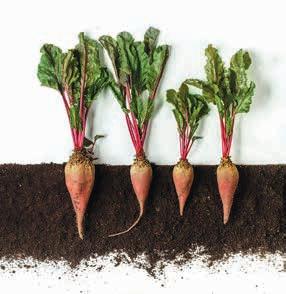
Chemical-heavy farming practices employed by conventional agriculture deplete topsoil, draining it of all its organic matter— the very microbiome needed to nourish the plants we grow and ultimately nourish us. In 2014, Maria-Helena Semedo, of the United Nations Food and Agriculture Organization, said that if current farming practices continue, we have only 60 years of harvest left. The clock is ticking.
Farming techniques proposed by the ROC are designed to continually rebuild soil. They are proven by years of science done at Rodale Institute and practical results achieved by regenerative organic farmers already growing food this way. “On the farm that we operate here at the Institute, we know that Native Americans were farming this land 8,000 to 10,000 years ago. We’d like to be farming this land 8,000 to 10,000 years from now. We probably won’t be using tractors or diesel fuel, but we will be using the soil,” says Rodale Institute CEO Jeff Moyer.
Under ROC standards that include a variety of rotating crops, cover crops, no tillage, no synthetic inputs of any kind, no genetically modified seeds and staggered grazing by animals, farms become biodiverse ecosystems with organically rich soil that absorbs water, doesn’t erode over time and produces safe, nutritious food. As J.I. Rodale said, “Healthy soil equals healthy food equals healthy people.”
Healthy soil draws carbon from the atmosphere deep into the ground, and that is a boost for our fight against climate change. “Regenerative organic farming has a very positive impact on climate, because we’re sequestering more carbon than we are emitting,” Moyer explains. “Under its current production model, agriculture is part of the problem. If it’s part of the problem, then it can and should be part of the solution. That’s the whole premise behind the [ROC] standard itself—treating agriculture as one of the primary tools that we’re going to use as a society to improve our relationship with the planet.”
Under the ROC model, animals must be raised in a humane way that frees them from discomfort, fear, distress, hunger, pain, injury and disease, while also being able to express normal behavior. To achieve these aims, they need to be taken out of CAFOs and reintegrated into farmland, so that they are pasture-raised and grass-fed, creating meat that is more nutritious and less diseased without chemical interventions.
“We’re integrating animals onto the cropland, with livestock, chickens, sheep and hogs. Imagine what the Great Plains of the
designed to ameliorate the problems associated with conventional agriculture.
United States was 500 years ago. You had bison, elk, deer, rabbits, wolves and myriad different birds, because the birds always followed the migrating animals. We’re trying to mimic that to a small degree on our ranch,” says North Dakota farmer Gabe Brown, who started transitioning into regenerative organic practices in the mid-1990s and wrote an influential book on the subject, Dirt to Soil: One Family’s Journey into Regenerative Agriculture.


Taking care of the farmers and workers that plant, raise, harvest and transport our food is not just the right thing to do, it also creates a system that is more stable and resilient, says Graham Christensen, a Nebraska farmer and president of GC Resolve. “There are serious issues with how the big agricultural companies are treating workers. We saw horrible situations with COVID in the meatpacking plants and how the workers were being treated. This is just one of the many reasons that this over-centralized, monopolized system is affecting people in bad ways,” he says. “Regenerative organic farming requires more hands-on work, which creates jobs. Structural changes in the food production system to decentralize agriculture in favor of regional markets comprised of smaller farms would allow for more equity and better management of the ecosystem.”

Jeff Moyer is CEO of Rodale Institute, which champions regenerative organic agriculture through scientific research, farmer-support programs and consumer education. On Earth Day, he plans to retire after dedicating 47 years to the influential nonprofit. Moyer revolutionized organic agriculture when he developed and popularized the roller crimper, a device that simplifies no-till crop management and reduces or eliminates the need for herbicides to control weeds. Under his leadership and as a member of the Regenerative Organic Alliance, Rodale Institute helped develop a Regenerative Organic Certified standard that expands USDA Certified Organic requirements to include soil health, animal welfare and social fairness pillars.
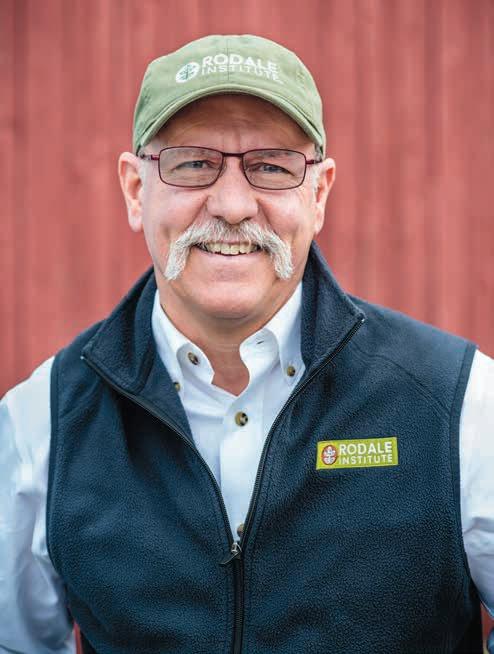
Because it boils down the measurement of farming success to one word: yield. By focusing just on yield and sacrificing longterm resource stability to get it, we’re chewing up topsoil at a national rate of five-anda-half tons per acre of farmland per year for short-term economic benefit. You can only do that so long before you run out of topsoil. It doesn’t make sense long-term.
We’re suggesting a different production model, based on science, that incorporates other metrics of success: soil health and long-term planetary and human health. As a side bar, let’s say you’re a smoker and you stop smoking—your lungs will regenerate. The same is true with soil. If we change production practices, the soil will regenerate. Under our Regenerative Organic Certified standard, we want well-thought-out crop rotations to get more biodiversity into the system, cover crops and reduced tillage to get more earthworms, and a reintegration of livestock into farms. I’m not going to argue whether people should be eating animals, but if you are going to have animals in the system, they should be raised on farms with grass, not feed lots with grain.

Healthy soil is more biologically active and has a positive impact on climate because it doesn’t just sequester more carbon, it sequesters it at greater depths. We want carbon to last in the soil for a very long period of time. We don’t want it to be short-cycled in and out of the system, and we want to sequester it at greater depths where we can control
it and maintain it for hundreds of years. Ideally, we’ll get it deeper and deeper in the soil over time.
Affordability is a strange term. Can we produce all the food we need at a reasonable cost? Absolutely. The problem with the conventional model is that we don’t pay the true cost of food production at the point of purchase. As an example, when we have to dredge the Mississippi River because of all the soil that’s washing into it from agricultural lands, you don’t pay that bill at the supermarket or restaurant. You pay it as a hidden cost, buried in our tax structure. In an organic system, you’re paying the true cost of the production of that food at the point of purchase, which makes more sense. And if you add the cost of human health—diabetes, heart disease—all the things that our current food production and food consumption model embodies, then the system we have now is outrageously expensive, and regenerative organic food is cheaper than conventional food.
Yes. In most parts of the world, we use agricultural lands to produce all kinds of commodity products that aren’t food. Forty percent of the corn we produce in the U.S. goes to ethanol production and another
40 percent goes to livestock feed. The ink in your pen was made with soybean oil. If we decided to produce the most amount of food on an acre or hectare of land, we can produce way more food than we need.
What we’re saying is that conventional agriculture cannot feed the world longterm. In the short-term, we’re producing a lot of cheap food, but our current production model is doomed to failure over time because we’re going to run out of healthy soil to farm.
Very hopeful. The USDA says that most organic farms are more profitable and expanding at a more rapid rate than their conventional counterparts, and that’s because we have a growing population of support in the marketplace. People are beginning to pay attention to how their food is produced, asking the right questions and recognizing that they have a vote with their food purchasing dollars. We’re seeing the concept of regenerative organic enter into the daily conversation, just like we did a few years ago with organic. People didn’t know what organic meant at first. Recent USDA statistics suggest that roughly 80 percent of the nation’s population has eaten something organic in the last 30 days, so people are seeking out organic, and we’re going to follow the same course with regenerative organic.
Autism Spectrum Disorder (ASD) is characterized by challenges with social interaction and communication. For parents of children with autism, learning to manage this condition requires a multidimensional approach, including consideration of food and nutrition. A personalized, nutritious diet can help manage behavioral problems, health risks and quality of life for kids with autism.
Beth Lambert, executive director of Epidemic Answers, says, “Once you come to understand autism as a whole-body condition, rather than just a brain-based or genetic condition, you start to understand the importance of nutrition in treatment and symptom management.” Not only does a nutritious diet help maintain brain balance, it also helps address many of the nutritionrelated concerns that children with autism face, such as food sensitivities and allergies, digestive disruptions, sensory issues with textures and nutrient deficiencies. Each of these issues can impact a child’s behavior.
An essential piece of the autism and diet connection is gut health. Gaby McPherson, MS, RDN, LDN, at Fruitful Nutrition says, “Because a child’s gut health is linked to their brain health, it’s crucial to boost their gut function to reduce these symptoms that can impact their behaviors. Who wants to go around with a tummy ache and consti-
pation every day?”
Yaffi Lvova, RDN, author of Beyond a Bite: Playful Sensory Food Exploration for ASD and Neurodivergent Kids, advises that individual abilities also should be considered when developing a nutrition plan. “Autistic children often have sensory sensitivities that make it difficult to eat certain (sometimes many) foods,” she says.
Many therapeutic diets have been evaluated for children with autism. Most involve the elimination of one or more foods, which can be challenging for a child that already has difficulty getting a wide variety of nutrients.
A popular option is the gluten- and casein-free diet. Gluten is the protein found in wheat, barley and rye. Casein is a protein found in milk and other dairy products. While some children with autism may be sensitive to gluten or dairy, this is not a one-size-fits-all approach, and there is mixed data in support of this regimen.
Another choice is the specific carbohydrate diet (SCD), which involves limiting certain carbohydrates, processed foods, most dairy, sugar and more, with the goal of reducing food sensitivities and improving the gut microbiome. Mixed outcomes have been reported with this diet due in part to its elimination of high-fiber foods that may
be beneficial for brain health. McPherson explains, “Gut bacteria digest (or ferment) fiber in the large intestines to produce short-chain fatty acids, which are known to improve brain health significantly.”
The Feingold diet is another approach that eliminates artificial flavors, sweeteners, preservatives and salicylates. Salicylates are compounds found in certain fruits and vegetables. While there is some evidence that food dyes may play a role in children’s behavior, most studies on this diet have not demonstrated a significant impact on ASD symptoms.
Instead of following a specific therapeutic diet, most experts now understand that a diet for ASD needs to be personalized to each child. It is ideal to work with a registered dietitian that can address nutrient and feeding concerns and is trained to make individualized recommendations. A primary area to focus on, according to Lambert, is correcting vitamin deficiencies, which may play a role in improving behavioral and digestive challenges. Nutrients of concern include zinc, vitamin D, calcium, magnesium and essential fatty acids.
McPherson also relates that fiber should be at the forefront of any diet to address digestive concerns. “While many children on the spectrum may strongly prefer foods like chips, crackers, bread or white pastas, these foods tend to be lacking in fiber,” she says. “Good sources of fiber are split peas, multigrain breads and pears.”
A registered dietitian can also help families evaluate whether a diet is working. Lvova says, “It can be challenging to see whether a specific diet is working or not. When a change is made, the parents and caregivers often pay more attention in order to see if there is a difference, and the child responds positively to the change in attention. By keeping expectations realistic and ensuring a relaxed mealtime atmosphere, your child will have the best chance to meet their nutritional needs.” Ultimately, the goal is to make meals a positive experience for the child, with less emotional investment on which foods they can or cannot eat.
Ana Reisdorf is a registered dietitian and freelance writer with more than 15 years of experience in the fields of nutrition and dietetics.


With nicer spring weather, pets will likely spend more time outside. Whether lounging in the backyard, taking a walk around the neighborhood or venturing out to a dog park, our awareness of potential dangers is important. Despite the risks, there is no reason to keep pets cooped up. With diligence, protecting our furry best friends can become second nature as we safely enjoy the great outdoors together with our pets.
A fenced yard might seem like a safe space for pets, but that is not always the case. “Pesticides, herbicides and fertilizers are just a few of the toxic substances that could be in a pet owner’s yard,” explains veterinarian Alex Schechter, of Burrwood Veterinary, in Royal Oak, Michigan. “These substances can harm dogs and cats if they are consumed or come into contact with a pet’s skin.”
A 2013 study published in Environmental Research found that dogs exposed to professionally applied lawn care pesticides had a 70 percent higher risk of developing canine malignant lymphoma than dogs that were not exposed to these products.
Schechter recommends that pet owners choose non-chemical lawn management methods that are safe for pets, like neem oil or diatomaceous earth. “Reduce the use of chemicals by using organic farming practices or natural fertilizers,” he says.
Veterinarian Dwight Alleyne, an advisor at Betterpet, cautions that a yard might be home
to plants that are poisonous to pets. “Some of these plants could include lilies, sago palms, tulips and oleander,” he advises. “It is important for pet owners who have a backyard to be able to identify any potential hazards before leaving their pet out unattended.”
According to the U.S. Environmental Protection Agency, mouse or rat poison is a popular pest control choice that kills by causing excessive bleeding. Use of this product can be extremely dangerous to pets if they ingest either a poisoned rodent or the poison itself. Schechter warns, “If you see bait stations or dead rats, those areas may have been treated with a rodenticide.” He advises pet owners to have a conversation with their neighbors, suggesting the use of snap or electronic traps as more humane and less toxic alternatives.
Coal tar sealants used on driveways contain polycyclic aromatic hydrocarbons (PAH) that, according to the U.S. Centers for Disease Control and Prevention, may pass through skin or be inhaled. In large amounts, PAHs can irritate eyes and breathing, and several PAHs are carcinogenic in humans. Avoid sealing driveways with any coal tar products. When out for walks, pet owners should keep their dogs off other driveways, as well.
Dog parks carry several risks, including exposure to intestinal parasites. A 2020
study found that 85 percent of the 288 dog parks sampled had at least one dog infected with gastrointestinal parasites like Giardia, hookworms, whipworms or roundworms. These parasites can be transmitted when dogs eat or sniff poop.
“It is recommended that your dog is on a monthly heartworm preventative, which can help protect against common parasites that they may encounter,” says Alleyne. If a dog regularly visits dog parks, a vet can perform a fecal exam to identify and treat any intestinal parasites that the dog may have contracted.
When visiting ponds and lakes, beware of blue-green algae bacteria, which commonly proliferate in freshwater bodies, particularly during summer months. Dogs can ingest algae by playing in or drinking the water, or when licking their paws. In large quantities, algae can be toxic to dogs (and humans). Because algae are not always visible, keeping dogs leashed around bodies of fresh water is best.







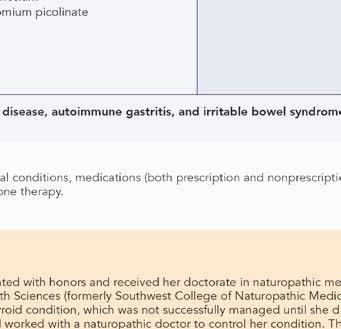



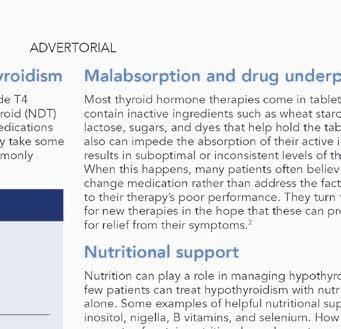


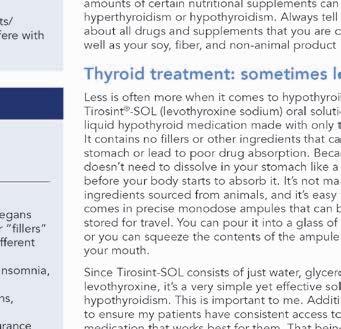
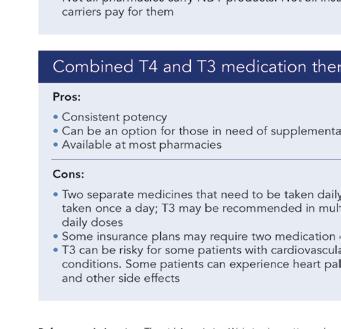





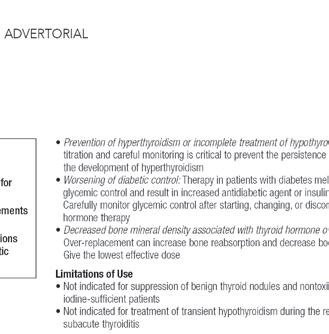


NOTE: Events were accurate at the time the magazine went to press – please call ahead to check for date or time changes. All calendar events must be received by the 10th of the month and adhere to our guidelines. Review submissions guidelines at NaturalAwakeningsSWPA.com or email Publisher@NaturalAwakeningsSWPA.com for more information.
Permaculture & Paints @Zero Café-Vermiculture Composting – 2-5pm. Hosted by Flannel Roots Farm. Hands-on lessons in worm castings, compost, and vermiculture tea. Leave with a shoebox size starter kit, 20 red wigglers, and worm food. Lunch featuring Paint and Sip Limited Specials and all supplies needed to create a free-form canvas painting about your future Verm Herd. $45. Tickets at FlannelRootsFarm.com/products/NewMicro-Permaculture-and-Paints-Workshop-March4th-2023. Zero Café and Market, 790 Tri-County Plaza Suite 101, Belle Vernon. 724-970-8491. The Healing Garden Exhibit – 6-8pm. 27 March thru 7 May. Hosted by Rodef Shalom Congregation. Drawings of members of the Allegheny Highlands Botanical Art Society that are featured in the 2022 publication The Healing Garden, celebrating the 36th year of the Biblical Botanical Garden of the Congregation. Created in 1986 by Rabbi Emeritus Dr. Walter Jacob and his late wife Irene, the garden introduces visitors to the horticulture, agriculture, and archaeology of Israel. The exhibit is free and open during hours of operation of the Congregation. Biblical Botanical Garden of Rodef Shalom, 4905 5th Ave, Pittsburgh. 412-621-6566.
Pittsburgh Opera Presents: Il Trovatore – 2pm. Hosted by Pittsburgh Opera. Revenge is a dish best served hot. Verdi’s Il Trovatore is an epic tale of love and sacrifice, deception and revenge. Two opposing warriors in Spain’s civil war in the 1400s do not know that they are brothers, but they love the same woman. Tickets $7.50-$172.50 at Opera. CulturalDistrict.org/production/78190/performance/78193/seat_selection. Benedum Center, 7th Street and Penn Ave.
Spiritual Sounds – 4-5pm. Hosted by Salt of the Earth with renowned practitioner Michele Buehl.
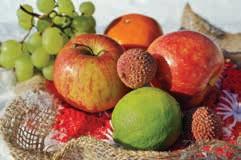
Experience enchanting and energetic healing with the cleansing and grounding vibrations of crystal singing bowls. Tickets $45 at Clients.MindBodyOnline.com/classic/ws. Salt of the Earth. 504 Valley Brook Rd, McMurray. 724-260-0472.

Grand Opening – On the Rocks Designs – 6, 7 April 2-7pm, and 8 April. 1-6pm, Hosted by Lisa Parker, owner and designer at On the Rocks Designs. Custom Jewelry for Real Individuals. Quality handcrafted jewelry, crystals, stones, and tools for jewelry makers at this retail space and studio. Any purchase eligible for prize drawings held on 8 April. On the Rocks Designs, 355 Butler Street, Etna. OnTheRocksDesigns.com. Lisa@ OnTheRocksDesigns.com.
10 Herbs You Should Know-With Emily Reitz, The Ginger Plantsman – 6pm. Workshop hosted by the Frank & Jane Gabor West Virginia Folklife Center. Emily Reitz has studied herbs in America and Europe, and is the owner of the Ginger Plantsman. $Free. First 25 attendees receive gift. Frank & Jane Gabor West Virginia Folklife Center, 1st floor classroom, Squibb Wilson Blvd, Fairmont, WV. 304-367-4403.
Stitch & B!tch – 6-8pm. Crochet class hosted by Penn Highway Market Place. Beginners, learn the basics and create a simple cotton dish cloth, all supplies provided, $40. Or bring your own project (and your own supplies) that you need help with, $20. Register at PennHighwayMarketplace.com/Product/ April-Stitch-b-h-Beginning-crocet-class/793. Penn Hwy Market Place, 6345 Old William Penn Hwy, Export. 724-519-2366.
YINZERCON – 11am. Hosted by Steel City Galleries. A celebration of all things Western Pennsylvania. The people, the food, the lingo, the unapologetic pride in our hometowns. A gathering of some of the biggest and best-known celebrities and brands. Exact celebrities and times to be announced. Block off your afternoon and be ready to join us at Remixxd HQ in Belle Vernon’s Amcel Center. Steel City Galleries, 724-243-3546.
WVU Core Arboretum Spring Flower Festival 2023 – 2-6pm. Hosted by WVU Core Arboretum. Family-friendly, free event showcasing beautiful spring ephemeral wildflower display. Self-guided wildflower tour, live music, lawn games, nature activities, food trucks. WVU Core Arboretum lawn area. Free parking at WVU Coliseum Parking Lot. 304-293-0387.
August Wilson Archives Opening Exhibit with Student Curator Talk and Mark Clayton Southers Lecture – 5:30-7pm. Hosted by Carnegie Library of Pittsburgh at Oakland. Opening exhibit of the University of Pittsburgh’s August Wilson Archives at Carnegie Library of Pittsburgh Main (Oakland) in the Gallery space, followed by a talk by the high school student curators of this exhibit and a lecture by Pittsburgh Playwright Mark Clayton Southers in the South Wing Reading Room. 4400 Forbes Ave, Pittsburgh. 412-622-3114.
Wetlands and Their Amphibian Wonders – 10amNoon. Hosted by West Virginia Botanic Garden. Join WVU graduate students for a spring walk around WVBG’s wetlands. Learn the importance of conserving wetlands, wetland birds and amphibians. Be prepared to get wet and muddy! Hands-on and all-age appropriate. $15/non-members, $5/members. Tickets and info at WVBG.org. 1061 Tyrone Rd, Morgantown, WV.
Monarch Waystation Program – 10am-Noon. Hosted by the Loyalhanna Watershed Assn and Weeders and Seeders Garden Club of Ligonier. Learn how you can help save this endangered beneficial insect, what plants and sustainable practices to use, and how to have your own garden certified as Monarch Waystation. $Free. Preregistration is recommended. Contact Susan Huba: Susan@LoyalWater.com. Loyalhanna Watershed Assn, 6 Old Lincoln Hwy West, Ligonier.
Our Honeybees and Why We Need Them –10:30-11:30. Hosted by Findlay Township Parks and Recreation Activity Center. Local Beekeeper Hank Brinzer presents a free, informative, and buzzworthy class about the importance of bees and why we should protect them. Findlay Township Activity Center, 310 Main St, Imperial, PA. 724-695-0500.
SUNDAY, APRIL 16
Spring Foraging & Wildcrafting – 1-4pm. Hosted by Dr. Lillian Ronzio School of Holistic Health. Join Master Wildcrafter Angie Collins on the school grounds harvesting wild plants that are edible and have been used medicinally for centuries by Native Americans. Learn each plant’s properties and their use. Wear comfortable outdoor clothing and bring a container for collecting plants, gloves, scissors, and a notebook. $30. Registration required at RonzioSchool.com.
Science and Nature Lecture: Pennsylvania Bats – 2-3pm. Hosted by Carnegie Museum of Natural
History an Powdermill Nature Reserve. An overview of species, conservation strategies and challenges. $Free. Children must be accompanied. Reservations strongly recommended. CarnegieMNH.org/event/ science-and-nature-lecture-pennsylvania-bats/?. Powdermill Nature Reserve, 1795 SR 381 Rd, Rector, PA. 724-593-6105.
TUESDAY, APRIL 18
Annual Mountaineer Audubon Spring Bird Walk – 7:30-10am. Enjoy the season as over 70 species of birds are seen or heard returning from their winter ranges. Guided tours are free and meet in the Arboretum parking lot. No reservations. Additional parking at WVU Coliseum.
WEDNESDAY, APRIL 19
Free Soil Lead Screening – April 19-22. Hosted by Allegheny County Conservation District. Registration required at ACCDSoilScreenSpring23. eventbrite.com. After registering you will be contacted by ACCD and be given detailed instructions on collection, labeling, and dropping off samples. Addresses for drop-off provided during registration process. Drop-off available in East End, South Side, Central, North Side, and West End. Results will be mailed to you within two weeks, along with how you should act on your results. Info: HHoch@ACCDPA. org or call 412-241-7645, ext 8009.
THURSDAY, APRIL 20
Just Between Friends Pittsburgh East – April 20-23, various hours, public and VIP levels. Hosted by Just Between Friends. Shop 50-90% below retail. Clothes, shoes, maternity, bathing, bedding, outdoor, indoor, sports, electronics, strollers, musical. More. Public shopping hours $5. VIP private early shopping various times and price tiers from $10 to $25. Tickets at Eventbrite.com/e/JBFPittsburgh-East-Spring-2023-Sale-Shopping-PassTickets-500839463317? Monroeville Convention Center, 209 Mall Blvd, Monroeville. Info PittsburghEast.JBFSale.com.
SATURDAY, APRIL 22
Terrarium Garden Workshop – 10am-Noon. Hosted by West Virginia Botanic Garden. Learn about terrarium gardens, their design, and care, then make one and take it home. $35/non-members, $25/members. Tickets and info at WVBG.org. 1061 Tyrone Rd, Morgantown, WV.
Beginning Crochet Workshop @The MAC –10am-1pm. Workshop hosted by The Monongalia Arts Center (The MAC). Learn to crochet with
Chelle Adams. All materials and tools included. $65. Tickets at Checkout.Square.Site/buy/ MUIAQKSKI72UL2IGIAYU3S6R. The MAC, 107 High St, Morgantown, WV. Info@MonArtsCenter.com.
SUNDAY, APRIL 23
Veggie Gardening 101 – 1-2pm. Hosted by Bedner’s Farm and Greenhouse. Part of the Meet Me in the Garden Lecture series. Learn how to garden in the ground, a raised bed, or a container based on what your family likes to eat. Learn site selection, sunlight requirements, watering schedules, pollinators, soil conditions, fertilizers, and plant selection. $Free. Pre-registration recommended: ShopBedners.com/Products/Veggie-Gardening101-April-23rd. Bedner’s Farm and Greenhouse, 315 Coleman Rd, McDonald. 724-926-2541.
Free Seed & Plant Swap – 1-3pm. Hosted by Loyalhanna Watershed Assn, Our Nook of the Woods, and Quacked Glass Studio. Bring your extra seeds, plant cuttings, herbs, bulbs, and flowers and take new ones home! Everything is free. Don’t have anything to share, you’re still invited. Loyalhanna Watershed Assn, 6 Old Lincoln Hwy West, Ligonier, PA 724-238-7560.
FRIDAY, APRIL 28
Arbor Day Tree Seedling Event – 10am-3pm. Hosted by Penn State Master Gardeners of Armstrong County. Master Gardeners will distribute 200 free American Redbud-Cercis canadensis seedlings to the first 200 drive-through participants, at the Belmont Complex. *One seedling per family* While supplies last. Belmont Complex, 415 Butler Rd, Kittanning. Armstrong County Master Gardeners, 724-548-3447.
SATURDAY, APRIL 29
Spring Field Trip: WV Botanic Garden – 7:30am9:30am. Hosted by Mountaineer Audubon. Join Mountaineer Audubon at this birding hotspot to watch for spring migrants and resident birds. $15/non-members, Free for members. Register in advance: WVBG.org. 1061 Tyrone Rd, Morgantown, WV.
Spring Bulbs & Planting for Pollinators – 10amNoon. Hosted by West Virginia Botanic Garden. Learn how to support pollinating insects by planting a wildflower bed focusing on tulip displays, hellebores, daffodils and more. $15/non-members, $5/members. Tickets and info at WVBG.org. 1061 Tyrone Rd, Morgantown, WV.

Hatha I Yoga – 10-10:45am. Hosted by Himalayan Institute of Pittsburgh (HIP) Yoga. Register online for drop-in and membership rates. HIPYoga.org. 300 Beverly Rd. 412-344-7434.
WVU Department of Biology Spring Ephemeral Wildflower Walks – Sundays through April, Noon, 12:30pm, 3pm, 3:30pm. Two hour guided tours. Meet at the Arboretum parking lot. Free event, free parking. Registration required: Eventbrite. com/e/wvu-department-of-biology-spring-ephemeral-wildflower-walks-2023-tickets-529293399807. WVU Arboretum, Monongahela Blvd, Morgantown, WV. Arboretum.wvu.edu.
Thai Cooking Class – 1-2:30pm or 3:30-5pm one Sunday/month thru May. Hosted by Thai Me Up. Learn to make quick, simple, delicious food at home. 10 students/class. $50. Register by calling 412-488-8893 or go to Thai Me Up, 118 S 23rd St.
Art as Therapy – 1-3pm. 2nd and 4th Sunday. Hosted by Atithi Studios. Unlock the therapeutic potential of artmaking. All disciplines and levels. Pay what you can to keep this program going. Registration required: AtithStudios.com/ programs.
The Writer’s Club – 1-3pm. 1st and 3rd Sunday. Hosted by Atithi Studios. Writers of all experience levels explore writing through discussions, feedback circles, prompts, and creative exercises. Pay what you can to keep this program going. Registration required: AtithStudios.com/programs.
Spiritual Sounds – 4-5pm. Hosted by Salt of the Earth. First Sunday each month thru July. Enchanting and energetic healing with cleansing and grounding crystal singing bowl vibrations. Michele combines crystal bowls, reiki, and guided meditation. Tickets $45 at Clients.MindBodyOnline.com/ classic/ws. Salt of the Earth. 504 Valley Brook Rd, McMurray. 724-260-0472.
Sunday’s Restorative Rejuvenation – 5-6:30pm. 3rd Sun. Hosted by Morgantown Power Yoga. All levels welcome. Learn to use breath, props, and focused awareness to decrease stress and anxiety in the body and the mind. Compliment your power yoga practice with restorative rejuvenation. $25. 235 Spruce St, Morgantown, WV. Tickets: Clients. MindBodyOnline.com.
The Poetry Atelier – 6-8pm. 1st Sunday each month. Hosted by The Space Upstairs. A series of sharing writings and writing processes, with writers invited to read their work, workshop their shared submissions, and experiment together in invented group exercises. Open and inclusive respectful forum. Drop-ins welcome. $5 suggested donation. 214 N Lexington Ave. 412-225-9269.
Hatha I Yoga – 7-7:45pm. Hosted by Himalayan Institute of Pittsburgh (HIP) Yoga. Register online for drop-in and membership rates. HIPYoga.org. 300 Beverly Rd. 412-344-7434.
monday
Hatha I Yoga – 10-11am and 6:30-7:30pm. Hosted by Himalayan Institute of Pittsburgh (HIP) Yoga. Register online for drop-in and membership rates. HIPYoga.org. 300 Beverly Rd. 412-344-7434.
Hatha II Yoga – 12:20-12:50. Hosted by Himalayan Institute of Pittsburgh (HIP) Yoga. New lunchtime class with Christianne. Register online for drop-in
and membership rates. HIPYoga.org, 300 Beverly Rd. 412-344-7434.

1 Hood Power Hour – 7-8pm. A virtual forum hosted by 1 Hood Power to discuss all things political in SWPA and beyond. A virtual public affairs forum featuring elected officials, policymakers and thought leaders. 617-517-7600. Facebook. com/1HoodPower.
tuesday
Hatha I Yoga – 8:45-9:30am. Hosted by Himalayan Institute of Pittsburgh (HIP) Yoga. Register online for drop-in and membership rates. HIPYoga.org. 300 Beverly Rd. 412-344-7434.
Sensory Friendly Afternoon – 1-5pm. Second Tuesdays monthly thru Nov 2023. Hosted by Children’s Museum of Pittsburgh. Individuals with autism spectrum disorders and sensory issues enjoy a comfortable and accepting museum experience Lights and sounds are adjusted, there are designated quiet areas, and sensory kits with noise-canceling headphones, sunglasses, and fidgets are available. Regular rates of admission apply. Info, PittsburghKids.org/visit/accessibility. Children’s Museum of Pittsburgh, 10 Children’s Way.
Beginners Yoga – 7:30-7:45pm. Hosted by Himalayan Institute of Pittsburgh (HIP) Yoga. Register online for drop-in and membership rates. HIPYoga. org. 300 Beverly Rd. 412-344-7434.
wednesday
Hatha I Yoga – 1-1:45pm. Hosted by Himalayan Institute of Pittsburgh (HIP) Yoga. Register online for drop-in and membership rates. HIPYoga.org. 300 Beverly Rd. 412-344-7434.
Yoga for Balance and Harmony – 1-1:45pm. Hosted by Himalayan Institute of Pittsburgh (HIP) Yoga. Register online for drop-in and membership rates. HIPYoga.org. 300 Beverly Rd. 412-344-7434.
THRIVE Carmichaels Community Garden Project Meeting – 6-7pm every second Wed. Hosted by Domestic Violence Services of Southwestern PA. Attend in person or via Zoom. Fellowship Hall, 101 W South St, Carmichaels. Info 724-223-5477.

Keep Calm and Carry Yarn – 6-9pm. 18 and over. 2nd Wednesday thru November. Hosted by HackPittsburgh. If you knit, crochet, spin, do needlepoint or any yarny craft, join our monthly Stitch & Bitch. Free to members, $2 donation requested but not required. Entry to venue is on Jumonville St. GPS: (40.437892-79.977705). Official address 1936 Fifth Ave. Info@HackPittsburgh.org.
Mid-Week Reset – 7-7:45pm. Hosted by Hima-

layan Institute of Pittsburgh (HIP) Yoga. Register online for drop-in and membership rates. HIPYoga. org. 300 Beverly Rd. 412-344-7434.
Yoga and Sound Bath – 7-8:15pm. 1st Wed. With Susannah Azzaro. $25. Himalayan Institute of Pittsburgh, 300 Beverly Rd. 412-344-7434.
thursday
Yoga Classes – 9:30-10:30am. 1st & 2nd Thurs. Hosted by Spruce Street United Methodist Church. All ages and abilities with variations to accommodate health and movement issues, with students sitting or standing next to a chair. Emphasis on meditative practices. Wear comfortable clothing. 386 Spruce St, Morgantown, W Virginia. 304-292-3359.
Hatha I Yoga – 10-10:45am. Hosted by Himalayan Institute of Pittsburgh (HIP) Yoga. Register online for drop-in and membership rates. HIPYoga.org. 300 Beverly Rd. 412-344-7434.
Movement and Breath Meditation – 1-1:45pm. Hosted by Himalayan Institute of Pittsburgh (HIP) Yoga. Register online for drop-in and membership rates. HIPYoga.org. 300 Beverly Rd. 412-344-7434.
Hatha II Yoga – 6-6:45pm. Hosted by Himalayan Institute of Pittsburgh (HIP) Yoga. Register online for drop-in and membership rates. HIPYoga.org. 300 Beverly Rd. 412-344-7434.
friday
Hatha II Yoga – 8:45-9:30am. Hosted by Himalayan Institute of Pittsburgh (HIP) Yoga. Register online for drop-in and membership rates. HIPYoga. org. 300 Beverly Rd. 412-344-7434.
Hatha I Yoga – 10-10:45am. Hosted by Himalayan Institute of Pittsburgh (HIP) Yoga. Register online for drop-in and membership rates. HIPYoga.org. 300 Beverly Rd. 412-344-7434.
First Friday Walk/Hike – 10-11:30am. Hosted by Allegheny Land Trust at various interesting parks and green areas around greater Pittsburgh. For info on location, focus, and cost go to AlleghenyLandTrust.networkforgood.com/events. 412-741-2750.

Friday Family Walk – 10am-Noon. Hosted by West Virginia Botanic Garden. First Friday of every month. Enjoy a short story followed by a walk around the Garden, conclude with a simple craft.
Anna Cabeca DO, OBGYN, FACOG Stress and Libido
Trail accommodates off road strollers. Members/ free, $15/donation per family suggested. Preregistration required: wvbg.org or Forms.donorsnap. com/form.
Friday 101 – Carnegie Science Center Fab Lab Public Workshops – 1-2pm. Hosted by BNY Mellon Fab Lab Carnegie Science Center. Take a crash course in maker technology – learn the basics of 3D printing, laser cutting, vinyl cutting, and more. $30/ nonmembers, $25/members. One Allegheny Ave. 412-237-3400. Register: CarnegieScienceCenter.org.
saturday
Hatha I Yoga – 10-10:45am. Hosted by Himalayan Institute of Pittsburgh (HIP) Yoga. Register online for drop-in and membership rates. HIPYoga.org. 300 Beverly Rd. 412-344-7434.
All-Levels Vinyasa Flow with Sarah – 10-11am. Hosted by Gritstone Climbing and Fitness. Get your Zen on and bliss out with this gentle yet challenging flow. Member/nonmember pricing and packages available. Tickets at ClimbGritstone.com. 1901 Eljadid St, Morgantown, WV.
Morgantown WV Indoor Farmer’s/Grower’s Winter Market – 10am-Noon. Select Saturdays from 3 December 2022 thru 15 April 2023. Monongalia County Center, 270 Mylan Park Ln, Morgantown, WV. Info at MorgantownFarmersMarket.org/ markets.html.
3D Printer Workshop – Noon-2pm. Hosted by Prototype PGH. Learn to use the Elegoo UV Photocuring 3D resin printer. $10 at Eventbrite. 460 Melwood Ave, Oakland. Info: PrototypePGH.com.
Prototype PGH – Monthly Open House – Noon2pm Second Sat of the month. Meet with members of our team to ask questions about Prototype and the events, workshops and services offered. Donations appreciated to cover free events and workshops. 460 Melwood Ave #208. RSVP on our Facebook page.
Second Saturdays at the Space Upstairs –8-11:45pm. Hosted by The Space Upstairs. Begun in 2007, Second Saturdays are the signature jazz happenings at the Space Upstairs. Lightbulbs and couches, coffee tables and deconstructed pianos, vivid splashes of light and projection. Poetry scribbled on the walls. Improvisational postmodern jazz dance by the Pillow Project. Different musical guest each month. Modern speakeasy magic and spontaneous art. Proudly a sober event serving several houseinfused waters, specialty iced coffees and seasonal drinks for donation at the Space Bar. $15 at the door. 214 N Lexington Ave. 412-225-9269.
Connecting you to the leaders in natural health care and green living in our Pittsburgh community. To find out how you can be included in the Community Resource Guide, email Publisher@NaturalAwakeningsSWPA.com to request our media kit.
MURRAY AVENUE APOTHECARY
Susan Merenstein, RPH, Holistic Clinical Pharmacist

4227 Murray Ave, Pittsburgh
412-421-4996 • MaaPgh.com
A Compounding Pharmacy Boutique, Pittsburgh's Pet Pharmacy, and home to LabNaturals CBD. We offer holistic health services—hormone balancing and consultation, pharmacist picked supplements, detox, nutritional counseling, absorbable acetylated and palmitated Glutathione products, and pharmacist-compounded CBD products for people and pets. We are a very specialized compounding only pharmacy and we compound anything that is not one-size-fits-all. Check us out online today. See ads, pages 8 and back cover.
PANTHER FUNCTIONAL MEDICINE AND CHIROPRACTIC
Dr Danielle Marra, DC Murrysville • Greensburg
724-387-1014 • PittsburghHealthPro.com
Dr. Danielle Marra has nearly 20 years’ experience helping patients regain their health through conservative and holistic approaches utilizing functional medicine, chiropractic, diet modifications, and nutritional support. The practice provides advanced lab testing, allergy relief, spinal decompression, CDL physicals, massage therapy, thermography and more. Their philosophy is treating the root of your symptoms, naturally. See ad, page 6.
SUSAN MERENSTEIN, BSPHARM, RPH, HOLISTIC CLINICAL PHARMACIST 4227A Murray Ave, Pittsburgh 412-421-4996 • LabNaturals.com



Founded by Holistic Clinical Pharmacist Susan Merenstein, LabNaturals offers an anti-aging line of skincare products that are safe, non-toxic and affordable. The company also carries a line of people- and pet-friendly CBD products and offers Vital Health consultation services on functional health and hormone balance. See ads, pages 8, 26 and back cover.
AND CHIROPRACTIC
Dr. Danielle Mara, DC
Murrysville • Greensburg
724-387-1014 • PittsburghHealthPro.com
Dr. Danielle Mara has nearly 20 years’ experience helping patients regain their health through conservative and holistic approaches utilizing functional medicine, chiropractic, diet modifications and nutritional support. Plus advanced lab testing, allergy relief, spinal decompression, CDL physicals, massage therapy, thermography and more. Their philosophy is treating the root of your symptoms, naturally. See ad, page 6.
THE KEFIR CHICKS
Connellsville, PA
TheKefirChicks.com
TheKefirChicks@gmail.com
Facebook.com/TheKefirChicks
Kathy and Haley, The Kefir Chicks, are two chicks on a mission to bring awareness to everyone about whole foods and gut health through whole, probiotic-packed food medicine – water kefir. See ad, page 13.

OLD THYME HERB SHOP, LLC


Lisa Cunningham
Old-Fashioned Family Herbalist
308 Liberty St, Perryopolis, PA 724-736-2400
Nothing fancy here; just hundreds of organic bulk medicinal herbs at your beck and call. Heal yourself ~ help others. In service and gratitude always. No Facebook, no website, no social media. Not enough thyme! Just you and I and your blessed healing herbs.
NUTRADENTIST
2555 Washington Rd, Ste 620 Upper St. Clair, PA 15241 412-831-9700 • nutradentist.com
Dr. Mark Buzzatto is a biological dentist who takes a holistic approach to your health. The use of whole food nutrition, biocompatible materials, essential oils, chromotherapy, sound, and spa services create a warm and relaxing environment, and comprehensive care for your family. See ad, page 13.
MELANIE KRNETA
DIP HOM. ACH, Reiki Master
1252 Liberty St, Franklin, PA • 814-428-9895
Facebook: Melanie Krneta Homoeopathy Plus


Classical homoeopathic consultations providing individualized care for the entire family. Migraines, hormonal imbalances, PTSD, grief, arthritis, digestive imbalance. Reiki sessions are beneficial for relaxation and pain management. Other services provided are far infrared sauna with medical grade color therapy and Himalayan salt and ear candling.
NAPTURAL BEAUTY SUPPLY
724-307-8487
NapturalBeautySupply.com
Naptural Beauty Supply was created to end the stigma around natural hair by empowering men and women to love themselves naturally. We do this by instilling confidence in our community and increasing convenience by having the tools and services in one place, such as hair and body butters, beard care and apparel. We are beauty supply with naturals in mind!
DR. ARETI, LLC
Dr. Areti Fitsioris
421 Cochran Rd, Pittsburgh
412-419-1537 (call/text) • Facebook.com/Dr.Areti
Dr. Areti is a board-certified naturopathic physician who implements manual therapy, lifestyle medicine, nutritional analysis, and non-invasive methods to address functional and structural imbalances – services are 100% grounded in evidence-based science. She goes the extra mile to identify and address root causes of conditions and to provide ongoing support.
412-258-0766 • SacredCenteredYou.com
Leza is known widely for her abilities as a sound healer, inspirational speaker and interfaith spiritual counselor. Healing arts services include vibrational sound healing, past life and soul regression, journey work counseling and conscious relationships counseling. Private and group services offered. Lesa Vivio, MS, LPC, CMHIMP, DDiv, DSM.
Raqueeb Bey, Garden Resource Coordinator


6587 Hamilton Ave, Ste 2W, Pittsburgh

412-362-4769 ext 215 • GrowPittsburgh.org
Raqueeb@GrowPittsburgh.org
Grow Pittsburgh is an urban, agriculture nonprofit that teaches people how to grow food. They envision the day when everyone grows and eats fresh, local and healthy food. Get involved. Take a tour, become a member, learn, volunteer! Visit their website for workshops and events.
Wyatt Melius
2000 Smallman St, Pittsburgh
412-609-8999 • RootedInSound.com
Sound massage, Nada yoga, forest bathing, and acoustic-induced meditation. Check the calendar for sound baths on Sundays and Thursdays. See ad, page 8.
SACRED, CENTERED, YOU, LLC
412-258-0766
SacredCenteredYou.com
Offering individual and group experiences that promote healing through self-discovery and personal acceptance. Special focus on sound healing, life coaching, qigong, and vibrational medicine.
360 CAFÉ LLC
Tyleda Worou Pittsburgh • 724-374-8089 • 360CafeLLC.com
360 Café LLC is an alternative health and wellness business with the goal of helping others to heal from the inside out while taking a holistic approach to healing by offering distance reiki, and crystal healing sessions to help our consumers restore physical and emotional balance.


SALT OF THE EARTH
Himalayan Salt Cave and Crystal Boutique 504 Valleybrook Rd,McMurray, PA 15317 724-260-0472 • SaltOfTheEarthPgh.com

Experience the known ancient healing benefits of halotherapy in the Himalayan salt cave, built from 16 tons of pure Himalayan salt. 45-minute sessions scheduled on the hour. Can be rented for private groups up to 10. Provides an inviting and relaxing environment for events and classes: yoga, meditation, sound healing, and reiki. The crystal boutique offers an array of authentic crystals, jewelry, candles, locally-made bath and body, and Himalayan salt products. The knowledgeable staff will help find the right crystal for you or your home décor. See ad, page 18.
VISIONS REIKI AND SOUL SPA
206 Alexander Ave, Strabane 724-745-1785 • VisionsReikiAndSoulSpa.com
As a full-service energy-health and wellness center, our goal is to empower people to be the best version of themselves. With the understanding that all wellness begins with a healthy energy system, Visions Reiki and Soul Spa offers holistic services, workshops, and coaching to help you establish a healthy and well-balanced lifestyle.
300 Beverly Rd, Pittsburgh 412-344-7434 • HipYoga.org

The Himalayan Institute of Pittsburgh is committed to creating and supporting programs for wellness in body, mind and spirit. Their purpose is to promote personal peace and global unity. Offering a daily schedule of yoga and meditation classes and healing services including massage, reiki and Ayurvedic health consultations. They are a leader in education, providing authentic yoga and Ayurveda certification programs.
Fee for classifieds is a minimum charge of $20 for the first 20 words and $1 for each additional word. To place an ad, email Publisher@NaturalAwakeningsSWPA com.
ADVERTISING SALES – Natural Awakenings magazine is looking for experienced advertising salespeople covering the Greater Pittsburgh area, SW Pennsylvania and Morgantown WV to help others grow their natural health & wellness and sustainable living or green businesses. Commission-based. Full- or part-time. Paying 25% commission. Unlimited potential income. Be a part of something magical! Send resume to Michelle: Publisher@ NaturalAwakeningsSWPA.com.
McCORMICK FAMILY FARM – 100% grass-fed/finished beef, pasture-raised chicken, and pure maple syrup following beyond organic, regenerative farming practices. 293 McCormic Rd, Portage, PA. 814-472-7259. Facebook: @ TheMcCormickFamilyFarm.
READING POETRY RELAXES – Inquire at: wewuvpoetry@hotmail.com or P.O. Box 4725, Pittsburgh, PA 15206-0725.
